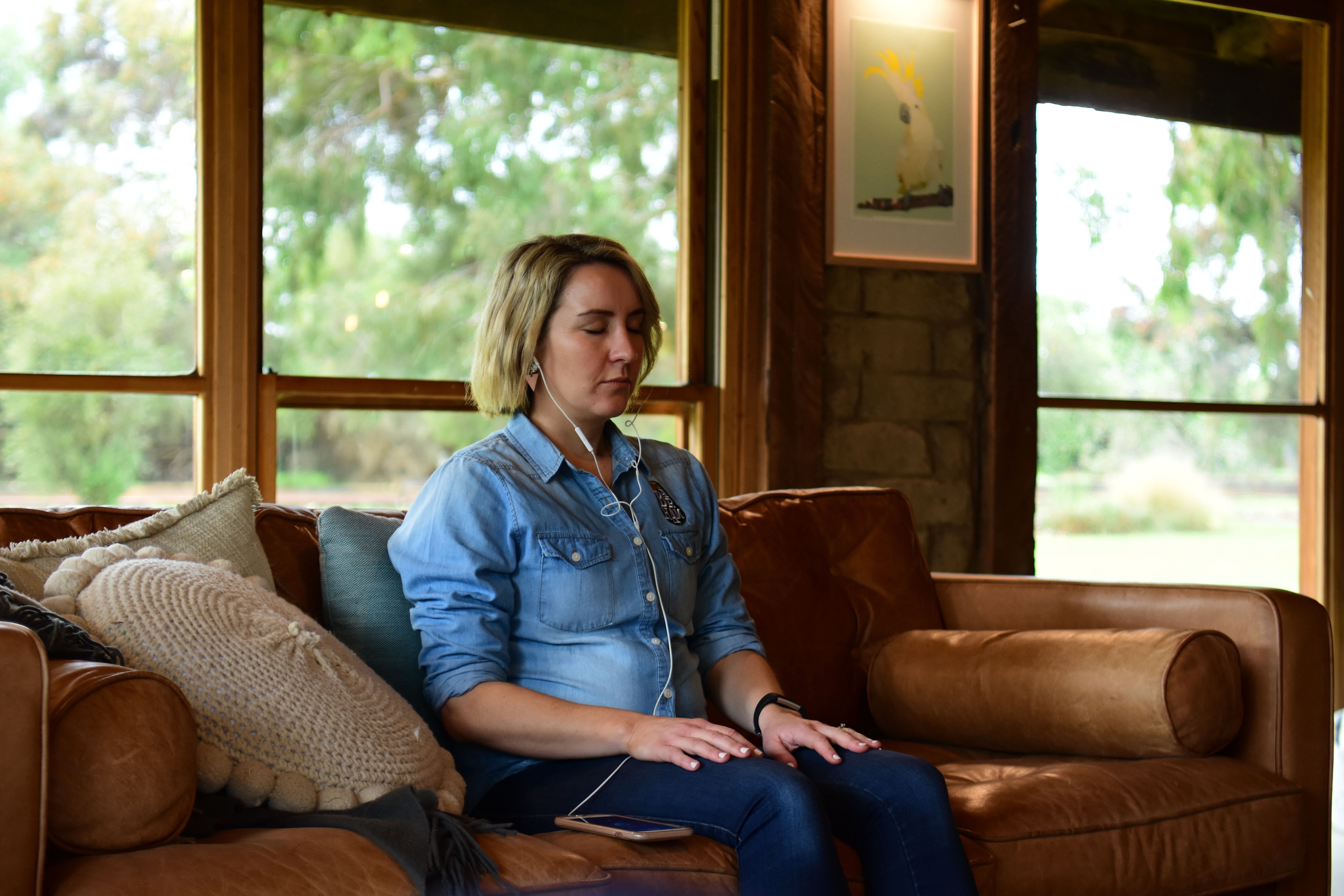Did you know that one in three small and medium sized business owners identify mental health as their top concern? It's time to take a serious look at workplace wellbeing. In collaboration with MYOB, we’re diving into actionable tips for supporting mental fitness in small businesses.
As the working landscape of Australia continues to evolve, a workplace wellbeing crisis looms, with over 31% of SME business owners identifying mental health to be their top concern.
Making up over 98% of Australian businesses and employing approximately 70% of the Australian workforce, SME owners play a central role in shaping and supporting Australia’s workplace mental health.
Identified to be a leading consideration for small to medium business owners according to MYOB’s SME Mental Health Report, it’s imperative SME business owners implement better systems and structures to support their employees’ and their own wellbeing. Why? Because more businesses than ever are experiencing the detrimental personal, business and economical impacts poor workplace mental health can have.
The good news? SME business owners are in a highly influential position to create a vibrant workplace that promotes positive connections and mental wellbeing. An effective way to leverage this position and effect positive change is by implementing systems and structures that strengthen employee mental fitness.
In this article, we’ll dive into why mental health is so important in the workplace and offer easy, actionable mental fitness tips to support mental health and wellbeing for all.
Why Workplace Mental Health is so Important
The impact workplace mental wellness can have on the success and growth of SMEs is more encompassing than many business owners realise.
Broadly speaking, the consequences of poor workplace mental health can be broken down into three key categories:
- Personal implications
- Business implications
- Economical implications
Personal Implications
- Higher levels of acute stress, anxiety, depression & burnout which can lead to a loss of interest, decreased sense of purpose and connection to the overall goals of the business.
- Physical health symptoms such as exhaustion, a compromised immune system, high blood pressure, etc.
- Anti-social behaviours increase, such as irritability or severe mood changes, brain fog and social or professional withdrawal.
Business Implications
- Employees are more likely to be disengaged with their work, leading to a rise in presenteeism (showing up for work and going through the process), alongside massive drops in productivity.
- Higher rates of illness-related absences, feeding into reduced productivity across the business.
- Employees feel less inspired, stalling creativity & general morale. This can lead to disengagement from their roles and the business. We see higher rates of absences, lower rates of job satisfaction and consequently, reduced employee retention which means the business has to spend more on recruitment.
Economical Implications
- Poor mental health is the leading cause of long-term absence from work in Australia, costing the economy up to $12 billion AUD a year [source]. This is calculated to be the equivalent of losing 3.2 days per worker every year due to workplace stress.
- A disengaged and apathetic workforce due to mental health is estimated to cost the Australian economy up to $39 billion AUD in lost productivity & participation [source].
- Preliminary research shows that failure to provide early intervention and treatment for employees with mental health conditions is causing Australian businesses to lose over $6.5 billion each year [source].
What can Poor Mental Health in the Workplace Look Like?
Mental health struggles can present itself in a wide range of ways, and will vary person to person. That’s why it’s important SME leadership teams know what to look for when it comes to monitoring their employees’ wellbeing.
Some common symptoms & signs of someone struggling with their mental health can be:
Behavioural
- More instances of heightened moods such as irritability, panic attacks, crying spells
- Sustained expressions of high-stress, which can mean even more minor tasks are identified as overwhelming
- A decrease in work output or drop in work quality (e.g. making excessive errors where usually errors are minimal)
- Acting generally disengaged and uninterested with not only their work, but other coworkers & social engagements
Physical
- Physical exhaustion
- Pallid complexion
- Increased absence due to regular illness (colds, stomach bugs, viruses)
- Changes in eating habits — noticeable rapid weight loss or gain
Source 1 & Source 2
How SMEs can Improve Workplace Mental Health Using Mental Fitness

Live Mindfully
1. Take Notice
In a world where “grind and hustle” culture is glamorised, it’s more important than ever to slow down and refocus on the present. When we’re constantly thinking about the future, we miss the warning signs right in front of us.
As a business owner, a great way to encourage your employees to pull focus back into the present and acknowledge how they’re tracking emotionally at work is by implementing mindfulness tools like:
- Creating a ‘mindful’ space in the workplace - a space dedicated to slowing down with no distractions. In this space, encourage a no laptop or phone policy, and provide access to mindfulness practises like guided meditations.
- Encourage purposeful breaks that take employees away from their daily task lists and encourage them to refocus into the present through sensory exercises, such as:
- Lunch time mindful/sensory walks where employees are encouraged to notice the sounds, colours, textures, activity around them as they walk
- Coffee/Tea breaks where employees take their time making and enjoying their drink away from their desks, noticing the sensory stimulation they receive such as the warm cup, the smell of freshly brewed coffee or tea, the taste of their first sip, etc.
Try an activity in the Smiling Mind App: If you’re one of the millions of people who currently use the app, simply open it to get started. If you haven’t used the app before, download it via the links at the bottom of the article.
If you're signed in, you can find the activity by clicking the button below, or simply search for ‘Mindful Living Guide’ for a card pile of ideas and tips to bring more mindfulness into your life.

|

Embrace Flexible Thinking
2. Provide Opportunities for Intentional Learning
Learning makes us feel engaged and valued. When we’re learning, we can become more creative and better problem solvers. In the workplace, we need to constantly be learning or encouraged to challenge our habits, or we risk becoming disengaged and bored in our work.
Employers can facilitate learning and flexible thinking for their employees through a number of structured and unstructured ways, including:
- Providing structured workshops and training opportunities for employees to dive into new skills sets.
- Implementing “habit releasing” practises in the office — ask employees to park in a different spot every day for a week. Place employees in different morning “coffee catch up groups” to encourage them to talk to new people in the office. Assign different seats in meetings every month.
Why do these things? Each time we release a small habit like the above, we are training our minds to adjust to change in a safe, controlled way. When we do this regularly, we’re strengthening our ability to creatively and flexibly problem solve when bigger situations arise.
Try a session in the Smiling Mind App: If you're signed in, you can find the activity by clicking the button below, or simply search for ‘Refresh Your Routine’ for a meditation to help you embrace a growth mindset when trying something new.

|

Grow Connections
3. Purposeful Connection
Feeling a part of a group or larger community is imperative to mental wellness. Considering the average Australian will spend close to a third of their life at work, it’s important we feel connected in the office too.
Employers can facilitate learning and flexible thinking for their employees through a number of structured and unstructured ways, including:
- Offer employees the opportunity to reconnect with their community through outreach programs, volunteer days or internal focus groups that allow them to connect on different levels away from their day-to-day roles or tasks.
- Encourage positive connections by creating opportunities for employees to express their gratitude by sharing what went well today or this week.
A prompt question can be something like “how well have you worked with someone in the business this week?”
Expressing gratitude can be for anything, such as a new collaboration on a project; someone lending a helping hand; someone bringing in their baked goods to share; someone offering emotional support (ensure privacy/confidentiality)
Try a session in the Smiling Mind App: If you're signed in, you can find the activity by clicking the button below, or simply search for ‘Benefits of Connection’ for a card pile to explore the great things that happen to our wellbeing when we connect.

|

Act Purposefully
4. Offer opportunities for employees to reflect
It’s all too easy to focus on what went wrong at work. But reinforcing these negative experiences without any purposeful counterbalance can be detrimental to how you view your work and your purpose. Ways to help employees acknowledge their strengths and identify their purpose at work can look like:
- Facilitating growth meetings with each employee that demonstrates how goal setting can support them to work towards something meaningful for them.
- Implementing mentor check-ins that ask employees to look back on their work from a more critical birds eye view. What did they do well? What strengths did they show? What did they actually enjoy about it and where else in the company does it make sense to use those skills where they will feel valued? Who supported them?
Try a session in the Smiling Mind App: Once you’re signed in, simply search for ‘What’s Important To Me’ - a reflective exercise to help you consider what you value in life to accomplish your goals.

|

Recharge Your Body
5. Get Active
Physical and mental health go hand in hand—where one improves, the other will surely follow. As such, it’s important for SME business owners to encourage their employees to care for and nurture their physical health as well. In the office, this can look like:
- Advocating for your employees to stand or walk during meetings. Research suggests that people are more engaged and benefit physically if they move their bodies in different ways throughout the day. Walk and talk meetings also encourage creativity and productivity.
- Ensuring everyone engages with their ‘right to disconnect’. Send emails during work hours; be mindful of realistic timelines for responses that don't require people to work in their non-work hours; endeavour to leave meetings with clear actions assigned to people and ask what blockers they can anticipate or what support they may need.
Try a session in the Smiling Mind App: Once you’re signed in, simply search for ‘Progressive Muscle Relaxation’ - an active meditation to release physical tension to improve sleep, focus and energy.

|
Get started today on the Smiling Mind App to learn more about how mental fitness tools can be used to improve workplace mental health.
If you haven’t used the app before, download it via the links below.
Once you’re signed in, you can locate the sessions referenced via the ‘Explore’ feature by searching for the name of the session.
Download the Smiling Mind App


.jpg)










.jpg)













